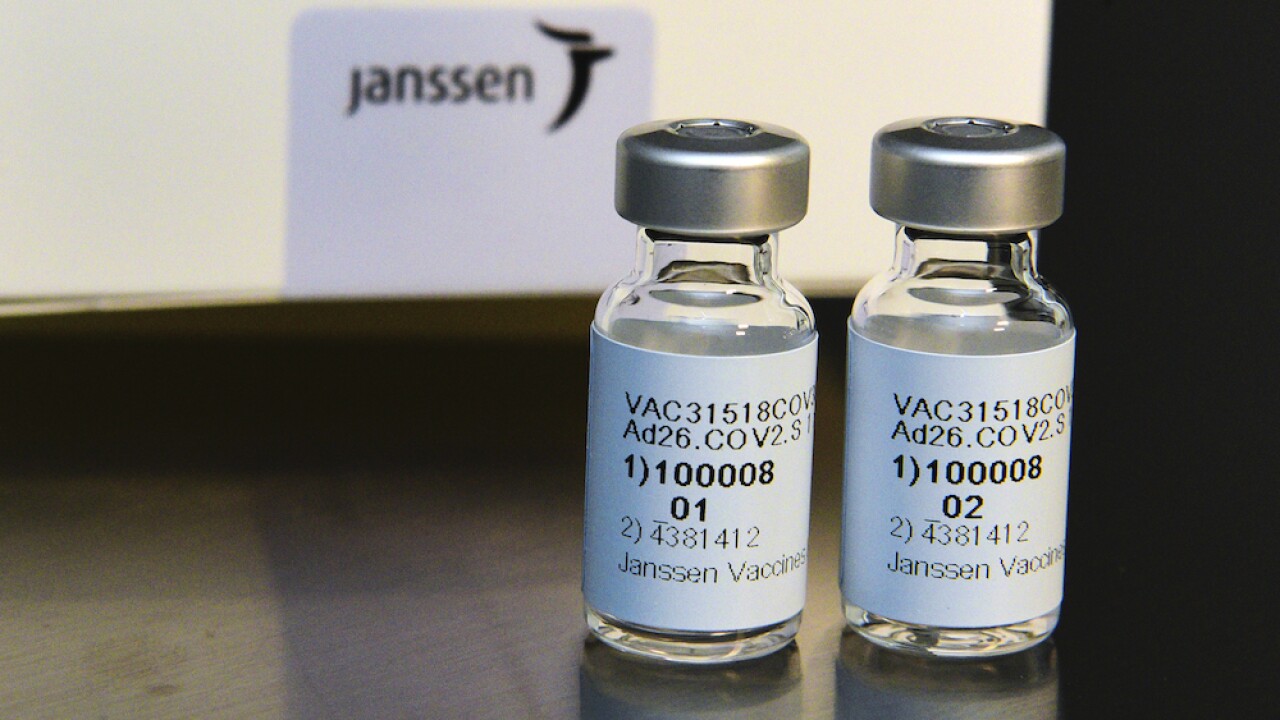SAN DIEGO (KGTV) -- The rollout of the Johnson and Johnson vaccine is on pause in California and more than 40 other states as federal health regulators investigate a half-dozen cases of rare but serious blood clots.
The clots have similar characteristics to cases in Europe associated with the AstraZeneca vaccine that have prompted some countries to impose age restrictions on doses.
But health experts are urging Americans not to panic. As of April 12, providers have administered about 6.85 million doses of the Johnson & Johnson vaccine and there have been only six cases of these rare blood clots.
RELATED: Fletcher: Johnson & Johnson vaccine pause shouldn't impact San Diego County
“I suspect that we're still going to be using the Johnson and Johnson vaccine as soon as this weekend,” said Dr. Christian Ramers of Family Health Centers of San Diego.
“We just need to take a breath here, look at the data and then maybe the CDC and FDA will develop some additional guidance about what to look for,” he added.
The Centers for Disease Control and Prevention has scheduled a meeting Wednesday on this topic.
Blood clots are common. As many as 900,000 Americans experience one each year. But there are different kinds of blood clots, and the six cases that prompted the pause of the J & J vaccine are extremely rare, Ramers said.
“It's really a very specific and unique type of blood clot,” he said.
RELATED: Newsom: J&J vaccine pause won't affect California reopening
The six blood clots occurred in the brain, what’s called cerebral venous sinus thrombosis. And what makes them particularly unusual is the patients had low platelet counts. Platelets are the cells that glom together to form clots.
All six cases occurred in women between the ages of 18 and 48. They had severe -- in some cases life-threatening -- symptoms 6 to 13 days after the shot.
The clots are similar to ones linked to the AstraZenca vaccine, which uses similar technology. Of the 34 million people vaccinated with that shot, about 222 have experienced this rare brand of blood count combined with a low platelet count.
The European Medicines Agency now lists the condition as a very rare side effect of the AstraZeneca vaccine. In response, France and Germany restricted the vaccine in younger people, limiting it to individuals over 55 or 60, respectively.
Most of those cases happened in women under 60.
RELATED: What to know if you received a J&J shot before officials said to pause the vaccines
Women’s immune systems respond differently than men’s. In general, women have a more “exuberant immune response,” said UCSF infectious disease expert Dr. Peter Chin-Hong. “It’s the reason why more women have autoimmune disease. It’s thought to be related to hormones, particularly estrogen.”
Estrogen tends to heighten immune responses while testosterone dampens them, one reason why researchers theorize women report more side effects to vaccination, he said.
The AstraZeneca and Johnson and Johnson vaccines share similar vaccine technology that is not found in the other shots. They use what are called viral vectors; dummy viruses that transport genetic code.
There are several early hypotheses about what may be triggering the immune-related blood clots linked to the AstraZeneca vaccine. One group of researchers theorized that in rare cases, a few of the dummy virus particles might be breaking apart early, releasing genetic code in the wrong spot. But the science is far from settled.
“There is no such thing as a perfect medicine that is 100% effective with zero risk, or a perfect vaccine that is 100% effective with zero risks,” said Dr. Ramers. “We need a balanced view about the risks and the benefits that these vaccines have brought us.”
Dr. Ramers points out there have only been six cases associated with the J & J vaccine after 6.8 million doses. That’s roughly a risk of about 1 in 1 million.
The risk of clotting during pregnancy is 1,000 to 2,000 times higher, he said.
“The risk of being struck by lightning is one in 500,000. So this is just actually half the risk of being struck by lightning,” he added.
A large study by UC San Diego found COVID-19 infection itself carries a huge risk of blood clotting. The researchers reviewed 8,000 cases and found at least 20 percent of the patients developed clots, far more than the rates linked to other infections.
The FDA and the CDC are encouraging people to watch out for symptoms like severe headache, abdominal pain, leg pain or shortness of breath within three weeks of the J & J vaccine. Those are symptoms associated with all blood clots, not just these rare ones.
A blood clot in the brain could cause a seizure, producing symptoms like blurry vision and the inability to speak, Dr. Ramers said.





